Are you looking to make a lasting impression in your next business correspondence? A well-crafted formal introduction letter is the perfect way to convey professionalism while establishing new connections. It's essential to strike the right tone and provide clear, concise information about yourself and your organization. Curious to see how to create the perfect letter? Let's dive in!
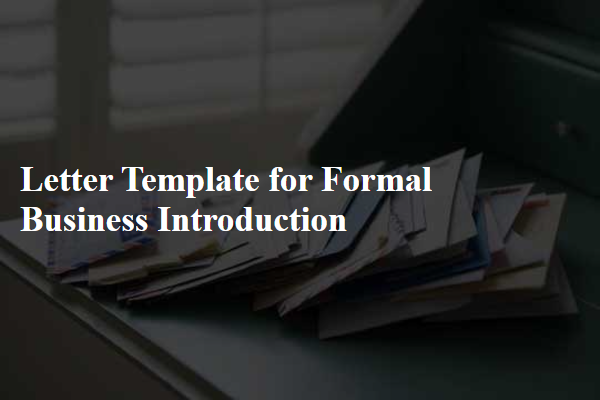
Clear and concise subject line
Formal business introductions often prioritize clarity and professionalism. A concise subject line can effectively capture attention and convey the purpose of the email. Subject lines such as "Introduction of [Your Name] - [Your Position] at [Your Company Name]" or "Opportunity for Collaboration: [Your Company Name] and [Recipient's Company Name]" highlight key details. Including specific identifiers like position or company reinforces the context. Keeping the subject line direct aids in immediate recognition, ensuring the introduction stands out in a crowded inbox. Focus on the relevance of the potential collaboration or partnership, appealing to the recipient's interests.
Professional greeting and address
In a formal business introduction, a professional greeting sets the tone for the communication. This often begins with a respectful salutation, such as "Dear Mr. Smith" or "Dear Dr. Johnson," followed by a courteous introduction that includes the sender's name and their position, emphasizing their role within the organization. The address includes precise details such as the company name, address, and any relevant affiliations, ensuring clear identification of the recipient's office location. This format not only conveys professionalism but also establishes a connection between the two parties, paving the way for effective communication.
Purpose of the introduction
In today's competitive business landscape, a formal introduction serves the crucial purpose of establishing professional relationships, enhancing networking opportunities, and fostering collaboration between companies. An effective introduction highlights the key aspects of the organization, such as its mission statement, industry positioning, and unique value proposition. This structured communication enables potential partners or clients to understand the objectives and benefits of engaging with the introducing entity. Additionally, a well-crafted introduction can create a positive first impression, laying the groundwork for future discussions, partnerships, or business ventures.
Relevant credentials or experience
The professional experience of individuals in the field of finance, particularly investment banking, often shapes their credibility. For instance, holding a bachelor's degree in finance from a prestigious institution such as Harvard University or the University of Pennsylvania signifies a solid educational foundation. Additionally, working for reputable firms like Goldman Sachs or J.P. Morgan Chase enhances expertise, emphasizing proficiency in financial analysis and market strategy development. Certifications such as Chartered Financial Analyst (CFA) or Certified Public Accountant (CPA) add further value, showcasing a commitment to ethical practices and ongoing professional development. Networking at industry events like the CFA Institute Annual Conference also provides opportunities to connect with influential leaders, share insights, and stay updated on market trends.
Call to action or next steps
A professional business introduction sets the stage for a successful partnership. Highlighting key elements such as mutual benefits or collaborative opportunities is crucial. Clear calls to action, for example, scheduling a meeting or discussing specific projects, can encourage engagement. Providing contact information, along with a brief overview of the company's mission and values, adds context. Furthermore, indicating a follow-up timeframe demonstrates commitment, fostering a connection that can lead to fruitful discussions and potential ventures. Emphasizing readiness for dialogue enhances the likelihood of a positive response.

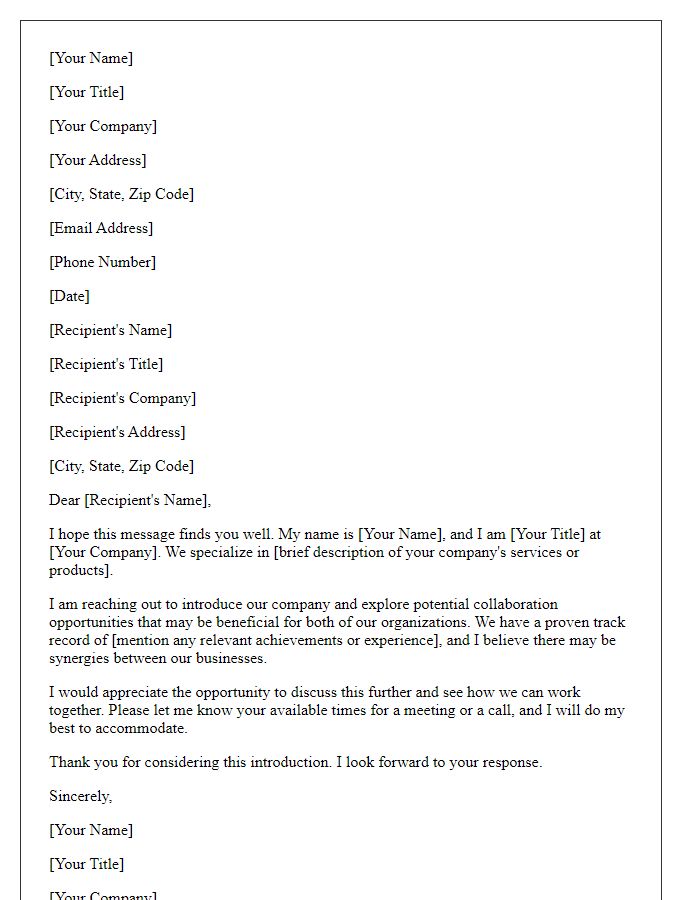
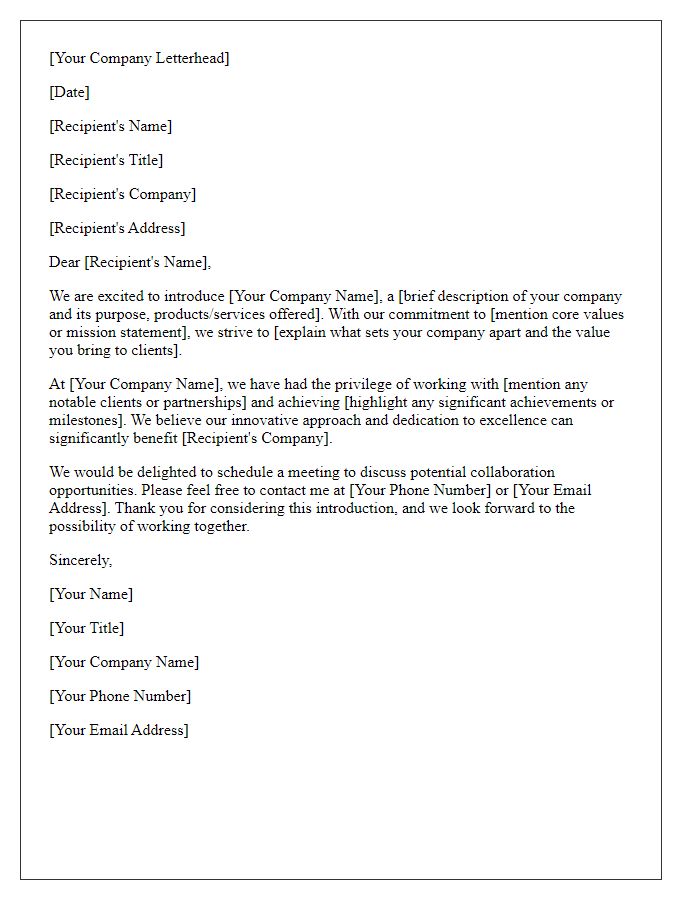
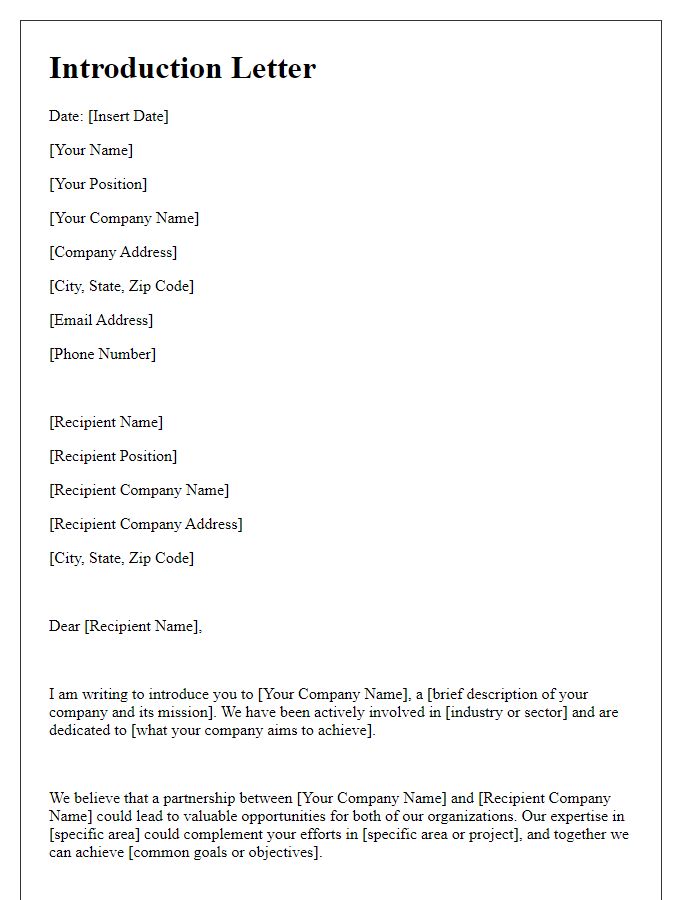
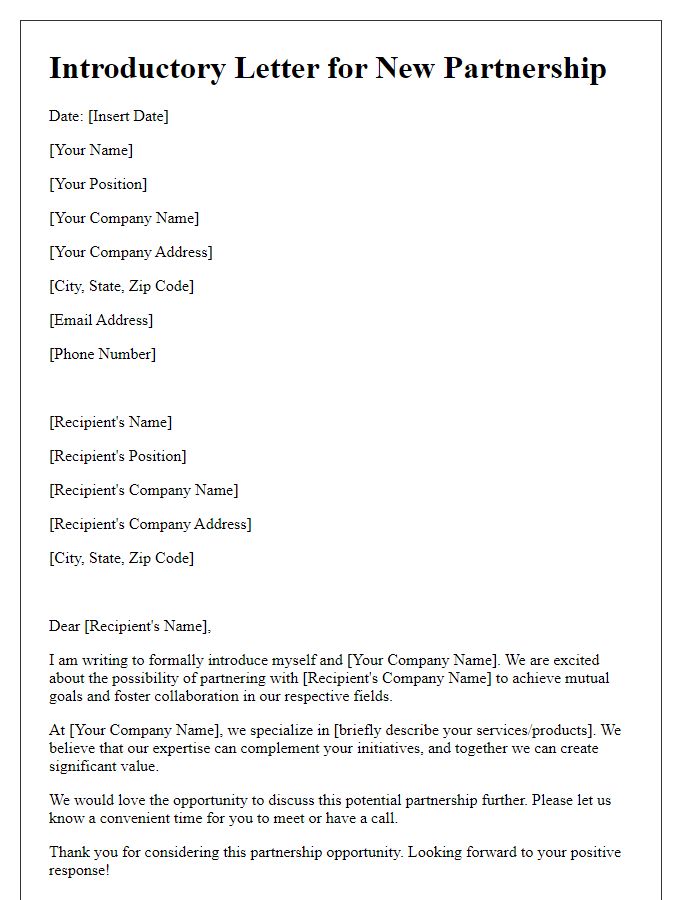
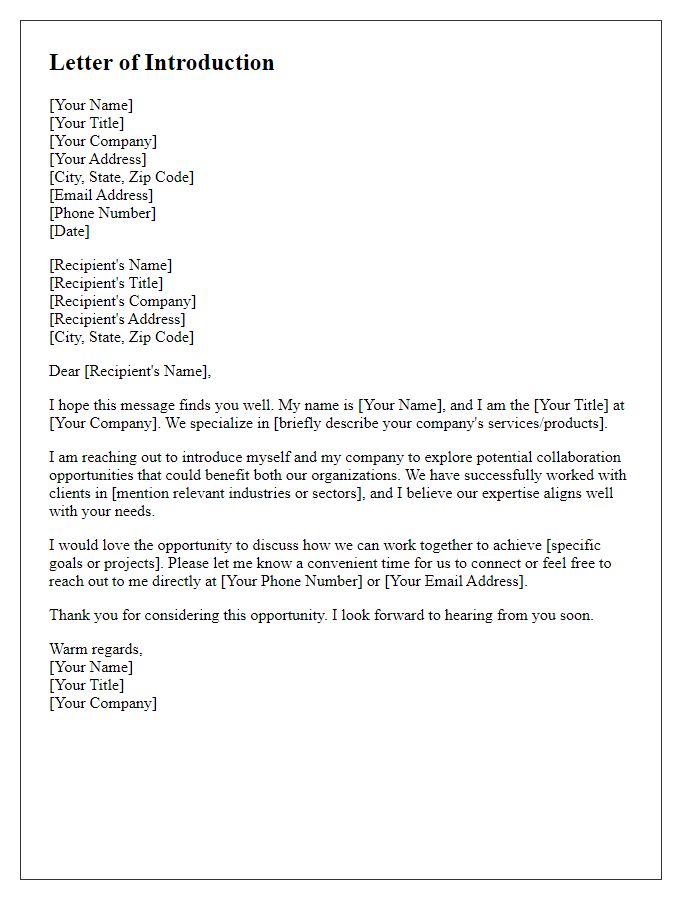
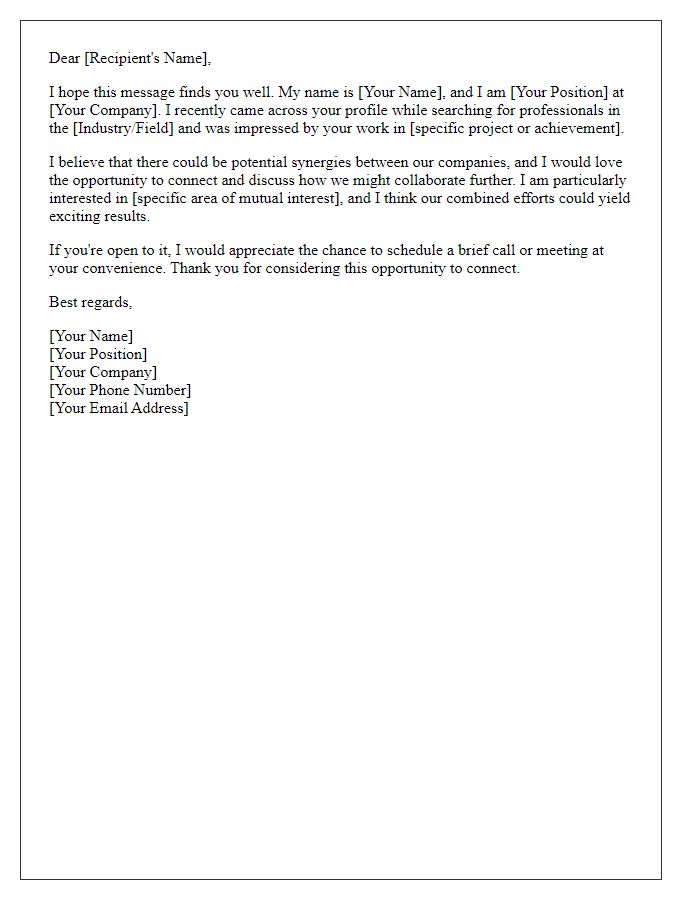
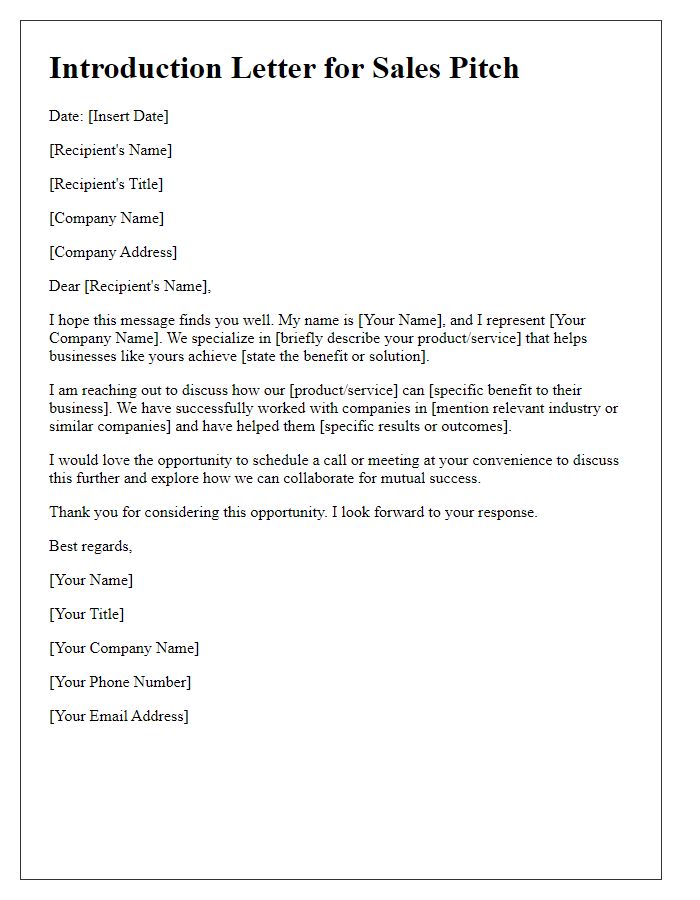
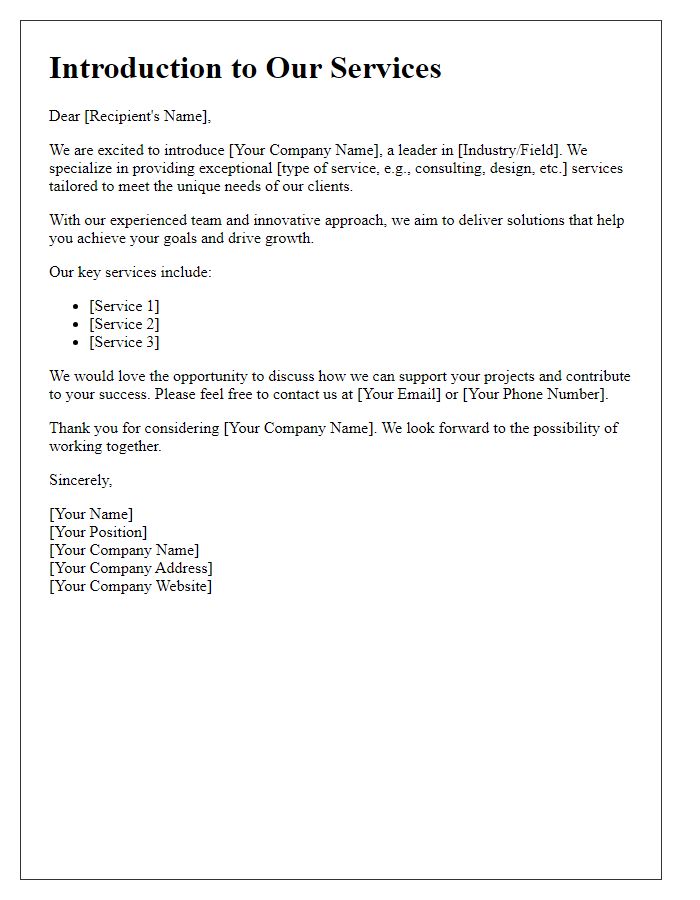
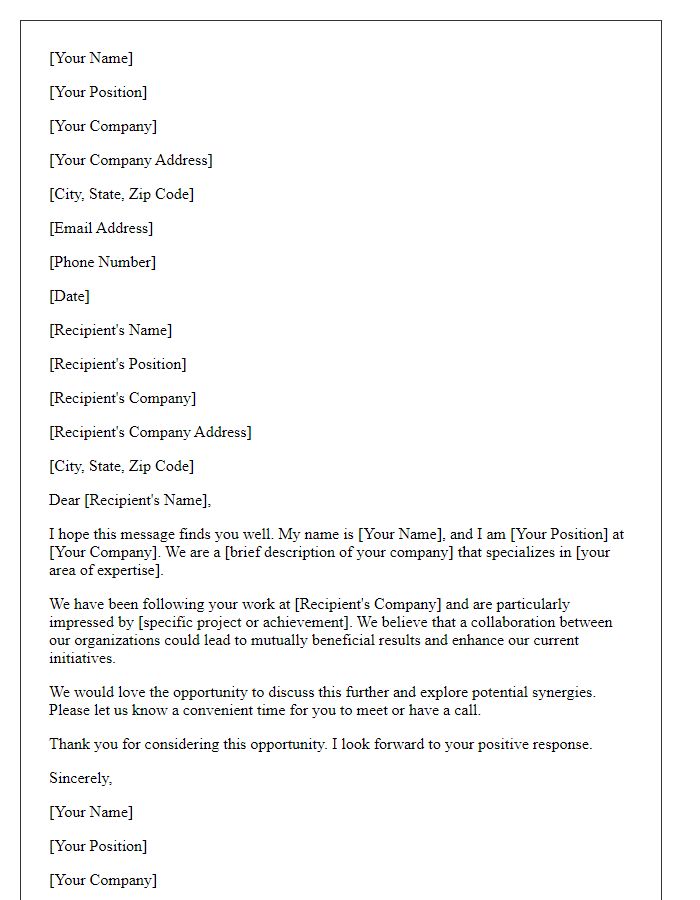
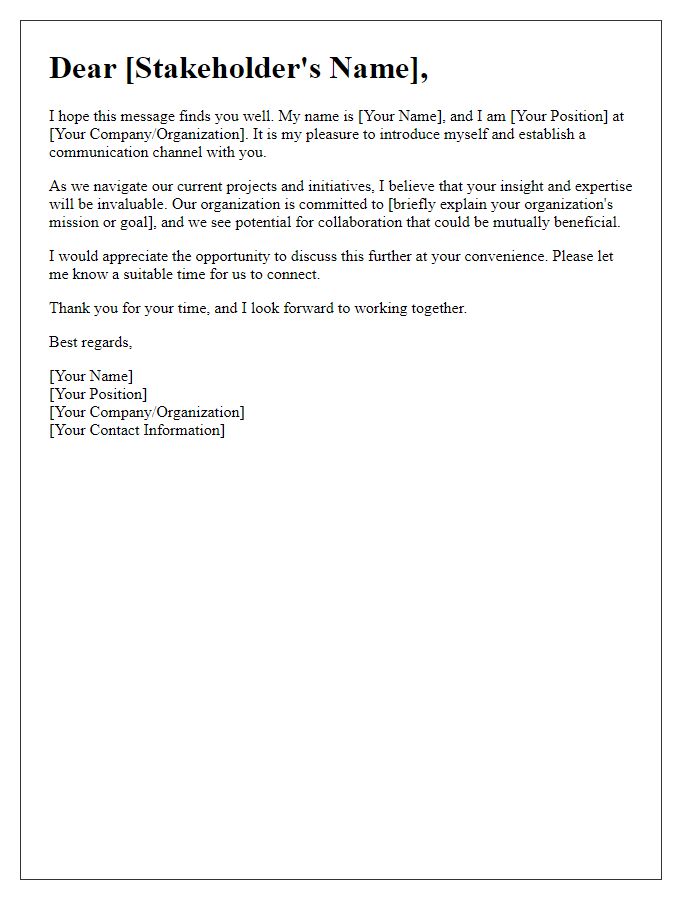


Comments